Люди-счетчики (Правда и вымыслы) - [3]
Among the sparse evidence we have John Bardot's 1732 account of the abilities of the inhabitants of Fida (on the coast of Benin):
The Fidasians are so expert in keeping their accounts, that they easily reckon as exact, and as quick by memory, as we can do with pen and ink, though the sum amount to never so many thousands: which very much facilities the trade the Europeans have with them.
Thomas Clarkson backed this up in 1788 with:
It is astonishing with what facility the African brokers reckon up the exchange of European goods for slaves. One of these brokers has perhaps ten slaves to sell, and for each of these he demands ten different articles. He reduces them immediately by the head to bars, coppers, ounces… and immediately strikes the balance.
The European, on the other hand, takes his pen, and with great deliberation, and with all the advantage of the arithmetick and letters, begins to estimate also. He is so unfortunate often, as to make a mistake; but he no sooner errs, than he is detected by this man of inferiour capacity, whom he can neither deceive in the name or quality of his goods, nor in the balance of his account.
There are surviving today, two period accounts of Thomas Fuller (both are reprinted in 1, our chief source for information on Fuller). Below is another excerpted from the Columbian Centinial, December 29, 1970, No. 707, p.123, col.32, Boston, Massachusettes. Note the reference to an ancient mathematics puzzle known to the Egyptians. Also note its pro-abolitionist conclusion:
Died- Negro Tom, the famous African Calculator, aged 80 years. He was the property of Mrs. Elizabeth Cox of Alexandria. Tom was a very black man. He was brought to this country at the age of 14, and was sold as a slave…. This man was a prodigy. Though he could never read or write, he had perfectly acquired the art of enumeration…. He could multiply seven into itself, that product by seven, and the products, so produced, by seven, for seven times. He could give the number of months, days, weeks, hours, minutes, and seconds in any period of time that any person chose to mention, allowing in his calculation for all leap years that happened in the time; he would give the number of poles, yards, feet, inches, and barley-corns in any distance, say the diameter of the earth's orbit; and in every calculation he would produce the true answer in less time than ninety-nine men out of a hundred would produce with their pens. And, what was, perhaps, more extraordinary, though interrupted in the progress of his calculation, and engaged in discourse necessary for him to begin again, but he would… cast up plots of land. He took great notice of the lines of land which he had seen surveyed. He drew just conclusions from facts; surprisingly so, for his opportunities. Had his [Thomas Fuller] opportunity been equal to those of thousands of his fellow-men… even a NEWTON himself, need have ashamed to acknowledge him a Brother in Science.
4.2 THOMAS FULLER AND HIS AFRICAN MATHEMATICAL EDUCATION
Item 33 in 'Have you read?' contains brief information on the calculating prodigy Thomas Fuller (1710–1790), born in Africa and brought as a slave to the USA in 1724. John Fauvel (Open University, England) was so kind as to track the source of Rouse Ball's article (item 33): E.W.Scripture, Arithmetical prodigies, American Journal of Psychology, Vol.IV, 1891, pp.1-59. Scripture gives the following information (p.3):
"Thomas Fuller, known as the Virginia Calculator, was stolen from his native Africa at the age of fourteen and sold to a planter. When he was about seventy years old, 'two gentlemen, natives of Pennsylvania, viz., William Hartshorne and Samuel Coates, men of probity and respectable characters, having heard, in travelling through the neighborhood in which the slave lived, of his extraordinary powers in arithmetic, sent for him and had their curiosity sufficiently gratified by the answers which he gave to the following questions: First, Upon being asked how many seconds there were in a year and a half, he answered in about two minutes, 47,304,000. Second: On being asked how many seconds a man has lived who is 70 years, 17 days and 12 hours old, he answered in a minute and a half 2,210,500,800. One of the gentlemen who employed himself with his pen in making these calculations told him he was wrong, and the sum was not so great as he had said — upon which the old man hastily replied: stop, master, you forget the leap year. On adding the amount of the seconds of the leap years the amount of the whole in both their sums agreed exactly' [American Museum, Vol.V, 62, Phila., 1799].
Another question was asked and satisfactorily answered. Before two other gentlemen he gave the amount of nine figures multiplied by nine…In 1790 he died at the age of 80 years, having never learned to read or write, in spite of his extraordinary power of calculation." Fuller could find also the sum of geometrical progressions [F.D.Mitchell, Mathematical prodigies, American Journal of Psychology, Vol. XVIII, 1907, p.62]. It would be interesting to search for elements of the rich traditional African mathematical education Thomas Fuller had passed through before being sold as a slave to the USA (editors).

В основе книги лежит моя статья написанная в 1991 году и в 1993 году напечатанная в журнале "Интеллектуальные игры" в котором я тогда был одним из редакторов. В 1996 я добавил кое-что о Мемориаде. А в 1997 дописал еще и 13-ю главу. Но менять тело как-то не захотелось. Извините за некоторые несоответствия.
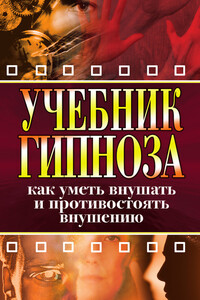
Книга, которая лежит перед вами, познакомит с историей гипноза, тайнами сознания и подсознания, видами внушения, методикой погружения в гипноз, углубления гипнотического состояния и выхода из транса.
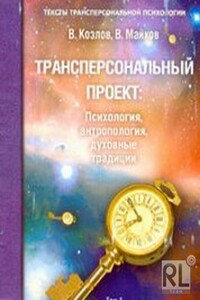
Книга является первым в России историческим очерком трансперсонального проекта в российской культуре. Авторы книги, доктор психологических наук, профессор Владимир Козлов и кандидат философских наук Владимир Майков, проанализировали эволюцию трансперсональной идеи в контексте истории психологии, философии, антропологии и духовных традиций.Во втором томе исследуется русская трансперсональная традиция и выявляются общие характерные особенности трансперсональной парадигмы в России и трансперсонального мировоззрения нашего народа и великих российских мыслителей.
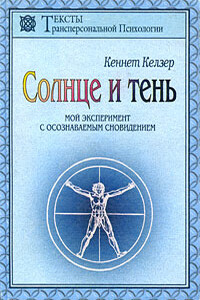
Осознаваемое сновидение есть сновидение, в котором спящий во время сна осознает, что видит сон. В таком сновидении спящий, достигая полной ясности сознания, с абсолютной уверенностью понимает, что все зримое и ощущаемое — сон, и эта необычная убежденность дает такой уровень свободы и личной силы, который недостижим в обычном сне. Эта книга уже является классическим произведением в области изучения сновидений и, наверное, еще долго будет оставаться одним из главных руководств для тех, кто следует по пути самопознания.
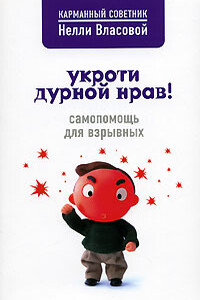
Жизнь – это наша марафонская дистанция. Если терять силы на стрессах и неприятностях, то едва ли мы доживем до достойного финиша. Успешный человек отличается от неуспешного не тем, что не падает, а тем, что умеет подниматься. Мудрый от обывателя отличается не тем, что не реагирует на стрессы и неприятности, а тем, что эта реакция скорее философская, чем злобная или страдальческая. Страхи, трудные люди, обиды, неуверенность, потери были и будут всегда. Вопрос только в том, управляют они нами или мы учимся управлять ими.Эта книга о том, как приобрести эти бесценные навыки.
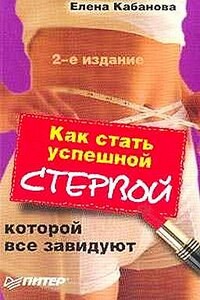
Название этой книги говорит само за себя — «Как стать успешной стервой, которой все завидуют». Замечали ли вы, что «серую мышку» никто никогда стервой не назовет? А если женщина, наоборот, активно борется за «место под солнцем» и за свой «кусочек счастья» — пожалуйста, готов ярлык: стерва. Может быть, это слово имеет позитивный смысл?Автор полагает, что это безусловно так. Ведь основные черты характера стервы — самостоятельность, прагматичность, высокая адаптивность и беспощадность к себе. Стерва принимает важные решения сама, не перекладывая ответственность на чужие плечи.

Тебе не позволяли хотеть самому? Ты все время жил чужой волей, и поэтому ты сейчас уже не хочешь ничего? Ты разучился хотеть? Боишься выбирать и тебе уже проще жить, как все, и тихо все это ненавидеть?.. Но есть другое предложение: начинать жить снова, потому что сегодня – это не жизнь, а жить все равно хочется, и жизнь стоит того, чтобы ее прожить полной грудью, со всей скоростью! Начинается такая жизнь непросто. Она начинается с детства, а детство – с игры в «Хочу» и «Не хочу». И протестов против того, что «Надо».Эта книга о том, как научиться видеть завтра и сделать свою жизнь радостной!